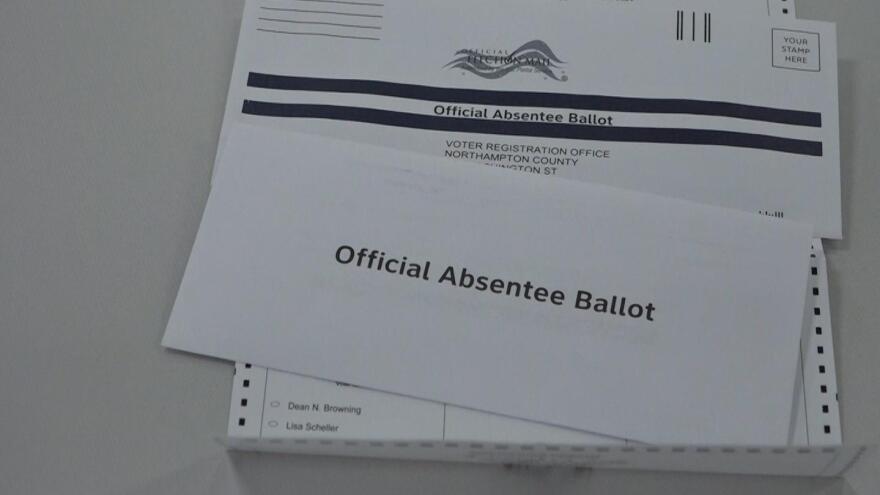HARRISBURG, Pa. - Pennsylvania officials cannot count votes from mail-in or absentee ballots that lack accurate, handwritten dates on their return envelopes, the state Supreme Court ruled unanimously Tuesday, a week before tabulation will begin in races for governor, the U.S. Senate and the state Legislature.
The court directed county boards of elections to “segregate and preserve” those ballots.
The justices split 3-3 on whether making the envelope dates mandatory under state law would violate provisions of the U.S. Civil Rights Act of 1964, which states that immaterial errors or omissions should not be used to prevent voting.
Written opinions laying out the court's reasoning were not immediately available.
In the Lehigh Valley, after a seven-month battle, the U.S. Supreme Court decided in June that 257 mail-in ballots, set aside in last year’s election, would finally be tallied in Lehigh County.
The U.S. Supreme Court in October granted a request from Lehigh County judicial candidate David Ritter and voted 7-2 to vacate a ruling from the Philadelphia-based 3rd U.S. Circuit Court of Appeals that had supported the counting of mail-in ballots that had no dates marked on the outer envelope.
Ritter lost to Democrat Zachary Cohen in the race for a Lehigh County Court seat after—out of 65,000 votes cast—257 mail-in ballots were found to be missing written dates on exterior mailing envelopes.
The U.S. Supreme Court October decision, however, did not change the outcome of the Lehigh County judicial election.
Pennsylvania counties have reported receiving more than 850,000 completed mail-in ballots from the roughly 1.4 million that voters have requested. About 70% of requests have come from Democrats and about 20% from Republicans.
Officials in various counties have said they were already putting ballots without dates on the return envelopes into separate piles in anticipation of a court ruling. Some counties may try to notify voters that their ballots are missing the dates, providing those voters the ability to visit their election offices to fix them.
The status of ballots without properly dated envelopes has been repeatedly litigated since the use of mail-in voting was greatly expanded in Pennsylvania under a state law passed in 2019.
In the current case, state and national Republican Party organizations and several GOP voters sought immediate review by the Supreme Court, bypassing lower courts, once it became clear some county officials planned to throw out ballots without the proper dates and others were expected to count them.
The individual voters were dismissed from the case by the high court's order.
Last week, Department of State officials under Democratic Gov. Tom Wolf argued in a brief that state law between 1945 and 1968 directed county election boards to set aside mail-in ballots when the envelope date was later than the date of the election.
But a 1968 change in state law, they said, deleted from a section of the Election Code "the requirement that counties set aside ballots based on the date appearing on the ballot-return envelope.”
The dates are not used to verify whether ballots are received in time to count on Election Day; that happens when counties time-stamp them upon arrival. There has also been evidence that at least some Pennsylvania counties have deemed any date to be acceptable, even dates in the future.
Republican litigants urged the justices to rule based on the language of state law, that voters "'shall ... fill out, date and sign the declaration’ printed on the outer envelope of the ballot.” As an alterative, they asked the justices to have ballots from undated or improperly dated return envelopes segregated.
The 3rd U.S. Circuit Court of Appeals ruled in May that the dates aren’t mandatory, but recently the U.S. Supreme Court deemed that decision moot, leading to the current litigation.

